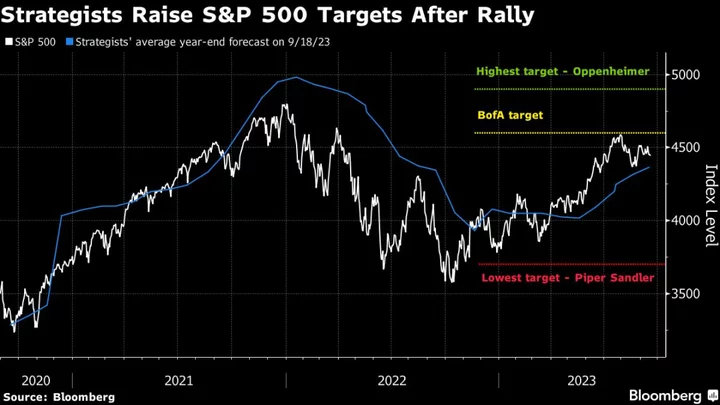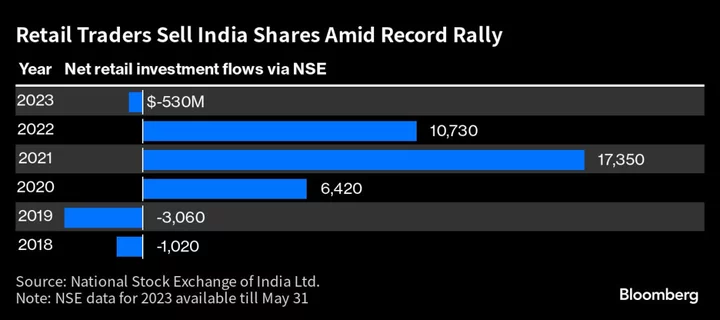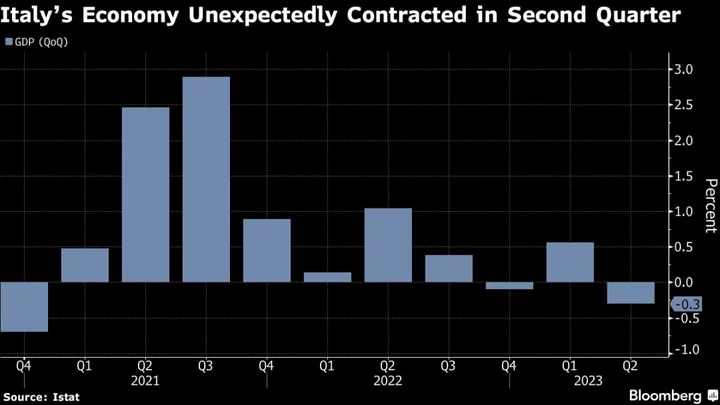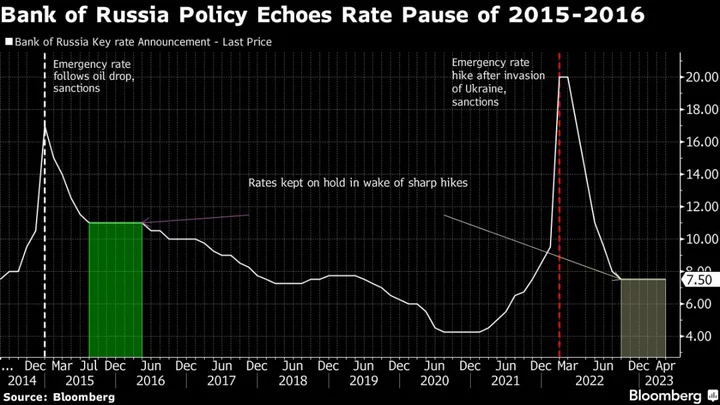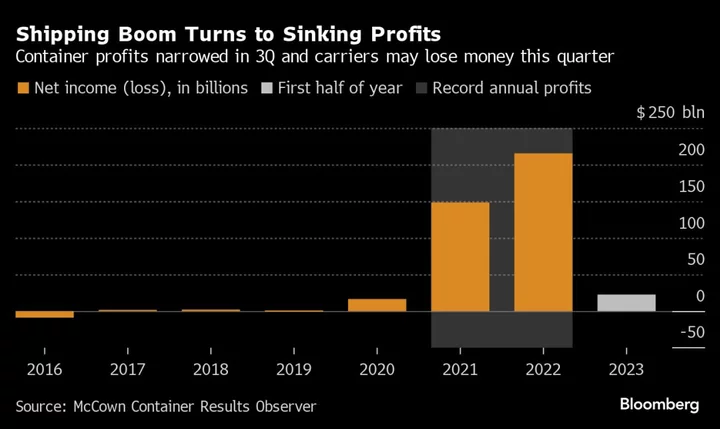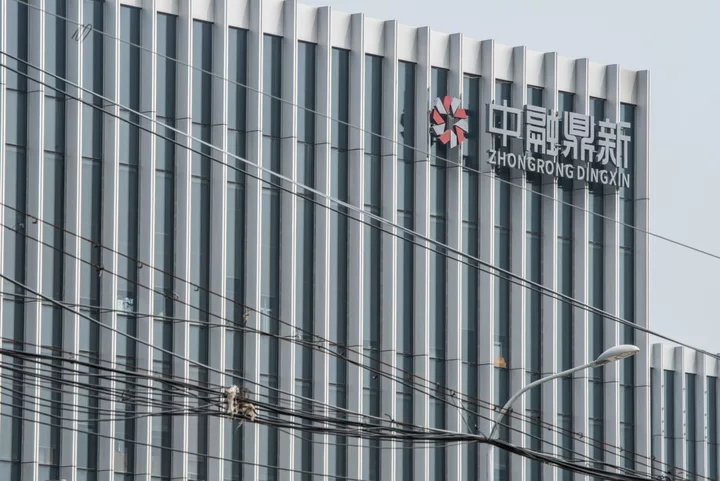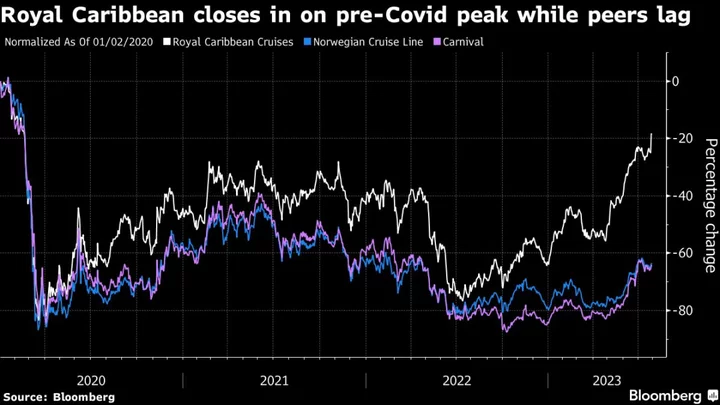Bank of America Corp.’s Savita Subramanian is the latest Wall Street strategist to boost her target for the S&P 500 after the sharp rally in 2023 left forecasts in the dust.
The strategist now expects the benchmark to end the year at 4,600 points versus her earlier target of 4,300 — implying a gain of about 3.5% from its Tuesday close. Indicators on the macro cycle, valuations and positioning are flashing bullish signals, she said.
Subramanian was one of the first to turn bullish in 2023 after correctly predicting the stock slump last year. Her new target is one of the highest on Wall Street, behind only Oppenheimer, Societe Generale SA and Fundstrat, according to data compiled by Bloomberg.
Artificial intelligence, automation and labor efficiency are expected to drive productivity at America Inc., Subramanian wrote in a note. “Old-economy, inefficient companies could benefit as much as tech and growth, but have not priced this theme in as richly,” she added.
The near-16% gain in the S&P 500 this year — driven by the buzz around AI as well as signs of resilient economic growth — has caught a majority of Wall Street strategists off guard and prompted a slew adjusted targets in recent weeks. Still, renewed worries around higher-for-longer interest rates have tempered the rally in the past two months. Recent positioning data also show investors are bracing for further declines in technology stocks.
Read More: Wall Street Comes to Grips With How Wrong It’s Been in 2023 (1)
Subramanian said she expects stocks to rise on better-than-expected macroeconomic and earnings data. She sees higher returns for the equal-weighted S&P 500, which she says has lower earnings volatility and estimate dispersion compared with the benchmark market-cap-weighted index. In the past nine “recovery” cycles, the equal-weight index almost always beat the market-cap-weighted index, Subramanian said.
--With assistance from Lu Wang.

